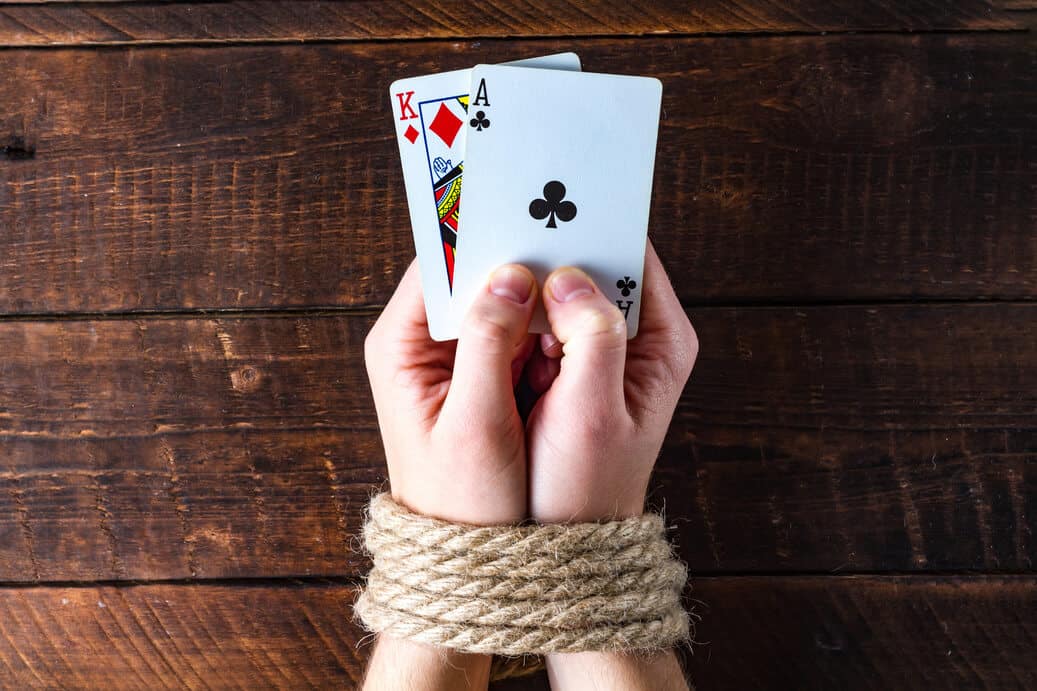
We tend to think an addiction involves a substance, like cocaine or alcohol, but this isn’t always the case. Some addictions involve a behaviour.
Behavioural addictions are less well understood than substance addictions. In the case of the latter, we assign the adjective ‘addictive’ to certain things. Smoking is addictive, heroin is addictive, sugar is addictive.
In these cases, we’re saying that the substances themselves are capable of causing addiction. And this is true. Substances like alcohol change the chemistry of your body and brain so that you become dependant.
While we sometimes give the ‘addictive’ adjective to behaviour – e.g. a game on your phone might be described that way – we less frequently assign causation. In other words, when someone is addicted to a behaviour, we usually place 100% of the responsibility on the addict.
How do behavioural addictions occur?
We know why some people become addicted to drugs and alcohol in Toronto. But while research is less conclusive about behavioural addictions, it does allow us to form educated hypotheses.
The research tells us that certain behaviours affect our bodies in ways similar to substances. For example, exercise causes the release of endorphins, which improve mood, reduce pain and provide energy. And yes, people can become addicted to exercise.
But it’s not just a matter of a certain activity conditioning a person’s body to crave more. There’s also a mental component to it, just as there is with the majority of substance addictions.
Many addicts also suffer from a mental health issue. This may be anxiety, depression, OCD, or something else. Whatever the condition happens to be, it may cause a person to indulge in addictive behaviour. For example, a person that’s stressed out from work may play a videogame to unwind. But the more they use the game as an escape, the more they come to need that game.
It may not be as apparent as someone who comes home strung out from work and drains a bottle of scotch each night, but the person who comes home and skips dinner, ignores their friends and parks themselves on the couch for eight hours may be just as much an addict.
What’s the science behind behavioural addiction?
Psychology Today says that “Certain behaviors produce a strong reinforcement in the brain that makes us want to do them over and over again, even if they interfere with our lives.”
Just as with substances on which we grow dependant, we feel we need to do these things. Even if the behaviour is something distasteful, or something we’re ashamed of, we’ll find a way to justify it. And this hypothesis isn’t just behavioural observation; addictive behaviour is caused by neurotransmitter activity in the brain.
According to Psychology Today, “The scientific evidence of brain imaging, psychological assessments, and treatment that links these behaviors to substance addiction is strongest for gambling addiction, but the evidence is growing for the other behaviors….”
While this might not mean a whole lot to the uninitiated, it shows there’s more at play than simply making the choice to stop an addictive behaviour. The same challenges that plague substance addicts also frustrate behavioural addicts, meaning willpower alone won’t always be enough to end a behavioural addiction.
It’s also notable that behavioural addicts sometimes suffer withdrawal in the same way substance addicts do. The symptoms usually manifest differently, but this shared characteristic is yet another link between the different types of addiction.
The most common behavioural addictions
A behavioural addiction can theoretically involve any type of behaviour, though some behaviours are more commonly linked to addiction. Examples of common behavioural addictions include:
- Gambling
- Video Games
- Sex
- Porn
- Internet
In each case, these behaviours can provide an individual with an escape, stimulation or self-actualization. They are all potentially damaging habits that can lead to physical health issues, mental health problems and strained relationships.
Though these addictions are common, they are not the only behavioural addictions a person might experience. There are numerous activities that people may potentially become addicted to.
How behavioural addictions are treated
Behavioural addictions are treatable much like substance addictions. This is because both affect brain activity and behaviour in much the same way.
Medical Detoxing is one element of it. Just as someone who’s addicted to marijuana should stop consuming marijuana, a person addicted to the internet needs to get offline.
Therapy is another component. Getting to the root of the problem – what’s causing the addiction, why did it begin when it did, how has it affected you, etc. – and learning coping techniques are instrumental to recovery, as well as preventing a relapse.
Receiving support from loved ones is also important. Behavioural addictions can be difficult to permanently discard because the most common types are so easily accessible. For example, gambling, porn, videogames and the internet can all be reached with the click of a few buttons. Making sure a support system is in place once the individual has exited a treatment centre and finishes therapy is beneficial.





